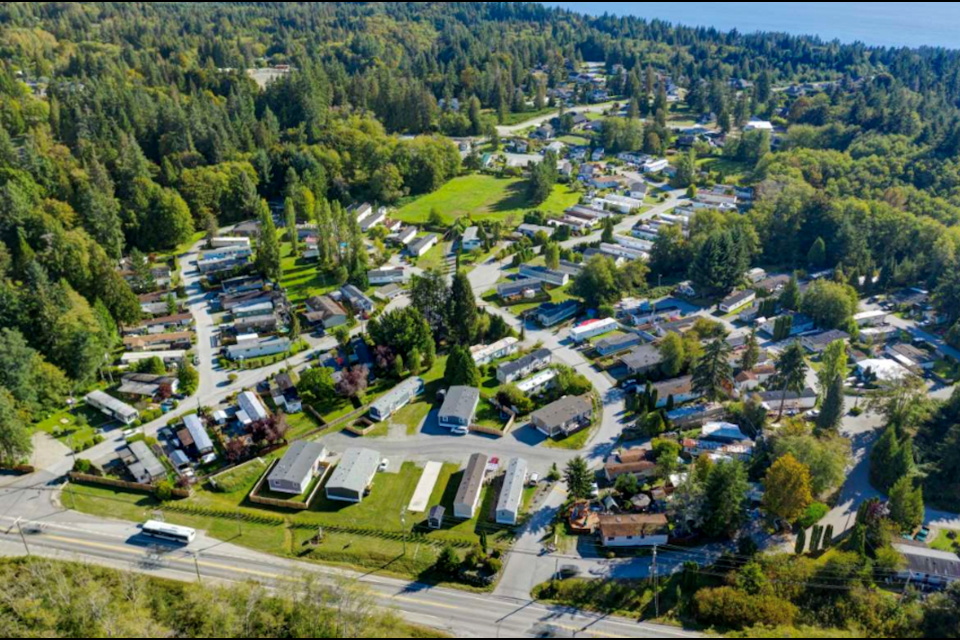In 2019, Canada Apartment Properties Real Estate Investment Trust (CAPREIT) purchased 68 manufactured home parks in B.C., Alberta and Ontario with more than 11,000 homes, which has expanded since to 77 such communities.
Now Mark Kenney, CEO of CAPREIT, says manufactured home offer a viable solution to the housing shortage and soaring prices that characterize Canada’s current housing environment.
“We have a housing crisis with a historical solution sitting right in front of us, it is absolutely staring us in the face,” Kenney, told Bloomberg in a recent interview.
CAPREIT is Canada’s largest landlord with more than 60,000 rentals and $16 billion in assets.
Kenney explains Canada has plenty of land and the recent pandemic showed that more people can work from anywhere – so why not in a factory-built detached house that sells for a fraction of a home in the city and rests on a pad that often rents for less than $500 a month?
Not incidentally, CAPREIT, like other investors, have found that manufactured homes can be a profit spinner, offering low tenant turnovers and higher capitalization rates than conventional rentals.
Bill Summers of B.C.-based Lighthouse Realty Ltd. said ‘mom-and-pop’ investor interest in manufactured home parks is rising this year, and high returns are a key reason. He said many buyers are coming from the Lower Mainland.
In Summers’ most recent sales in B.C.’s Interior, manufactured home park prices ranged from $1.2 million to $3.3 million, and the cap rates were from 5 per cent to 5.5 per cent. This compares to an average cap rate of sub-3 per cent in most of Metro Vancouver, where the average detached home price is north of $1.8 million.
There are rural starter parks that attract nascent investors. Summers has a seven-pad, one-acre manufactured home park listed in the popular B.C. resort area of Salmon Arm priced at $475,000, or less than the price of a Vancouver condo.
As an investment, manufactured home parks are a highly sought-after commodity, and a big reason is the steady cash flow they generate.
“I have found the parks to be the safest version of a retirement savings plan, without your income being controlled by outside influences, such as the stock market. The investment is threefold: the tenants pay your mortgage down, while income after expenses and the value of the property traditionally increase over time,” Summers explained.
This investment income is from the rental of a pad space. The park supply services to the underside of the home and tenants are responsible for their own utility costs and connections above the ground. Tenants also pay the taxes on the unit itself. The park owner is responsible for the land taxes and maintaining the common areas, roadways and services on the property, which include hydro, telephone, water, sewer or septic system, snow removal and garbage collection.
In B.C., rents are controlled by the Residential Tenancy Branch, which allows a yearly increase based on a percentage above the present rents, currently set at 2 per cent.
Kenney noted fewer than 1 per cent of Canadian homes – about 200,000 – are in a manufactured home park, and he said it is a missed opportunity for governments trying to encourage affordable housing.
“We have a lot of land in Canada,” he said, “It is only a matter of zoning needed to allow these homes to be put in.”
Kenney agreed that the perception of manufactured homes has stunted their uptake, since most people think of homes that were built years ago.
“The reality is the quality of new manufactured homes is better than conventional detached houses built in subdivisions because the manufactured] homes are built in a controlled environment. The new manufactured homes are also probably the most eco-friendly homes you can buy.” he said.




